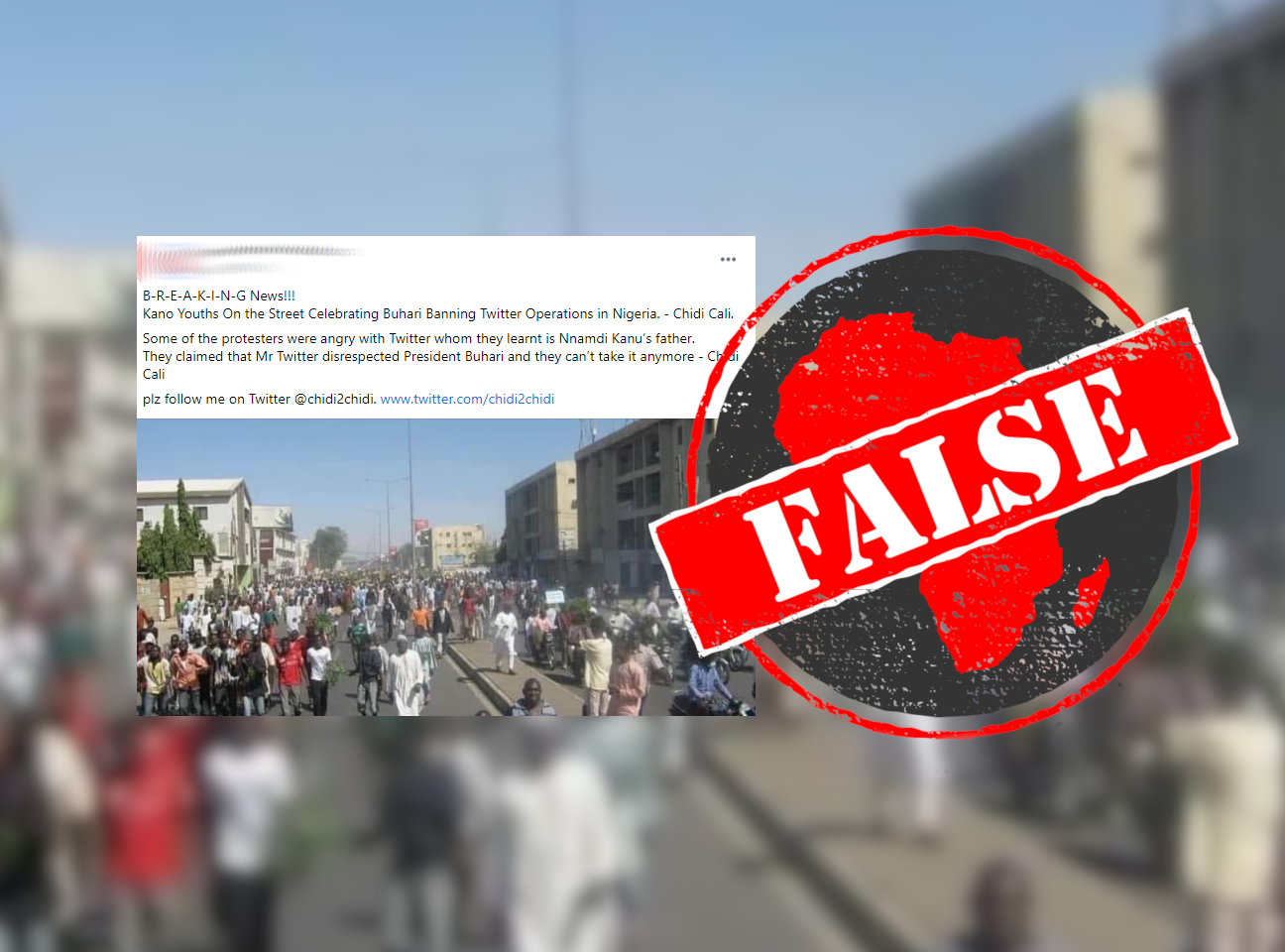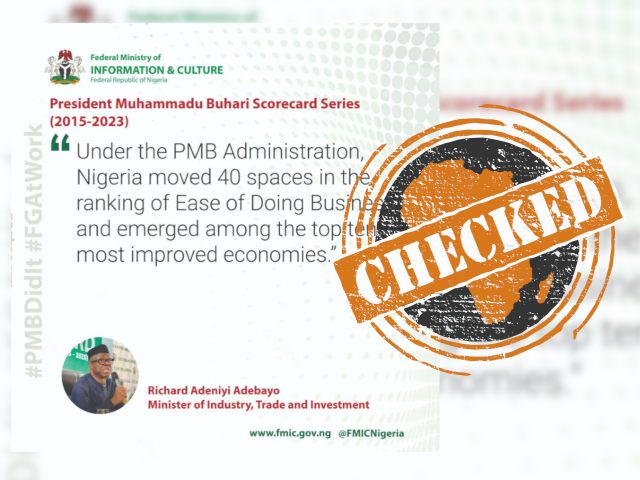A photo of a huge crowd of people walking down a street is circulating on Facebook with the claim it shows people in Nigeria’s Kano state celebrating the federal government’s recent Twitter ban.
“Kano Youths On the Street Celebrating Buhari Banning Twitter Operations in Nigeria,” one post reads.
Another describes the photo as: “Kano Youths celebrating Tweeter ban yesterday at the State Capital, Protest led by the Senior Special Adviser to their Governor on Youth affairs and their Government House Islamic Imam.”
In June 2021 Twitter deleted a tweet by Muhammadu Buhari, Nigeria’s president.
The government responded by announcing – in a statement released on Twitter – that Twitter would be “indefinitely” suspended in the country.
But does the photo show people in Kano celebrating the Twitter ban? We investigated.

Nationwide protests against removal of fuel subsidy
A reverse image search reveals that the photo is at least nine years old.
We found it in a January 2012 CNN report, headlined: “Nigerians protest end of fuel subsidy.”
Its caption reads: “Protesters took to the streets on Monday, January 9, in a nationwide strike against the Nigerian government’s decision to take away fuel subsidies”. It’s credited to Abba Hikima.
The caption doesn’t give the location, but the photo is years old and can’t show any reaction to the June 2021 Twitter ban.
Republish our content for free
For publishers: what to do if your post is rated false
A fact-checker has rated your Facebook or Instagram post as “false”, “altered”, “partly false” or “missing context”. This could have serious consequences. What do you do?
Click on our guide for the steps you should follow.
Publishers guideAfrica Check teams up with Facebook
Africa Check is a partner in Meta's third-party fact-checking programme to help stop the spread of false information on social media.
The content we rate as “false” will be downgraded on Facebook and Instagram. This means fewer people will see it.
You can also help identify false information on Facebook. This guide explains how.



Add new comment